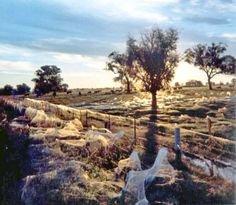Environmental Issues in Thailand
Environmental problems faced by Thailand include: 1) land subsidence in Bangkok area resulting from the depletion of the water table; 2) droughts and water shortages; 3) air pollution from vehicle emissions; 4) water pollution from organic and factory wastes; 5) deforestation; 6) soil erosion; and 7) wildlife populations threatened by illegal hunting. Between 1975 and 1988, the release of toxic chemicals increased 1, 200 percent. DDT was still being used in the early 2000s in part because it is effective in controlling mosquitos that carry the malaria parasite. [Source: CIA World Factbook *]
International environmental agreements signed by Thailand: Biodiversity, Climate Change, Climate Change-Kyoto Protocol, Desertification, Endangered Species, Hazardous Wastes, Marine Life Conservation, Ozone Layer Protection, Tropical Timber 83, Tropical Timber 94, Wetlands. Signed, but not ratified: Law of the Sea. *
Thailand is a country with abundant natural resources, including a wide variety of flora and fauna, and distinct ecological zones. There are over 100 Thailand national parks, including more than 20 marine parks. Ecological zones include the temperate forests of the northern mountains, the plains of central Thailand, the savannahs of the northeast and the mangrove forests of the southern coasts. Animals in Thailand include not only elephants and monkeys but also bears and whale sharks. [Source: Tourist Authority of Thailand]
Bangkok is particularly vulnerable to sea level rises associated with global warming. The city hosted a major international meeting on global warning in April 2007. In May of the same year parts of Bangkok had all their lights turned off for 15 minutes in a symbolic gesture to express concern over global warming. The city held a United Nations climate conference in October 2009. Thailand’s carbon dioxide emissions from consumption of energy: 278.5 million Mt (2010 est.), country comparison to the world: 23
Bangkok suffers from a number of environmental problems. It is sinking into sewage-filled canals that often overflow and flood the city in the rainy season. The city needs more sewage treatment facilities and more people cleaning out the garbage from the canals. In the early 2000s Bangkok’s sanitation budget was only $5.5 million. The city has started a campaign to get people to recycle more. It has received international aid to build two modern incinerators for waste disposal. Mass transit and other efforts to reduce traffic have also reduced air pollution somewhat.
According to a survey of expatriates living in Asia, India, China, Vietnam, the Philippines and Indonesia (plus Hong Kong) are regarded as the dirtiest countries in Asia, while Singapore, Japan and Malaysia were regarded as the cleanest. Thailand, South Korea and Taiwan were in the middle.
Some e-watse such old computers, old batteries and discarded electronics—some of which dangerous toxins such as mercury and dioxin—have been dumped in Thailand.
The 1997 economic crisis resulted in a reduction of pollution as people drove less and factories produced less pollutants. After the crisis car sales plummeted, factories reduced their output or were closed, construction ceased and developed projects were scrapped. Poverty caused by the crisis led to increased in legal logging, wildlife poaching, overfishing, cyanide fishing and slash and burn agriculture. Spending on the environment fell from $5 per person to $3.
King Bhumibol and the Environment
An active environmentalist, King Bhumibol has done his own cost-benefit analysis on the impact of power-generating dams versus coal-fired energy plants. He has also looked carefully into the effects of carbon monoxide pollution in Bangkok and on the Greenhouse Effect on his country as a whole and proposed suggestion on how to improve Bangkok’s traffic situation and air quality.
King Bhumibol has been deeply involved in water management. The Royal Rainmaking Project is credited with bringing water to drought-hit areas. Other projects include building dikes to store water and prevent flooding; introducing methods to prevent saltwater intrusion; using various kinds of plants to reduce water pollution in Bangkok’s canals; and treating wastewater through the use of aerators.










